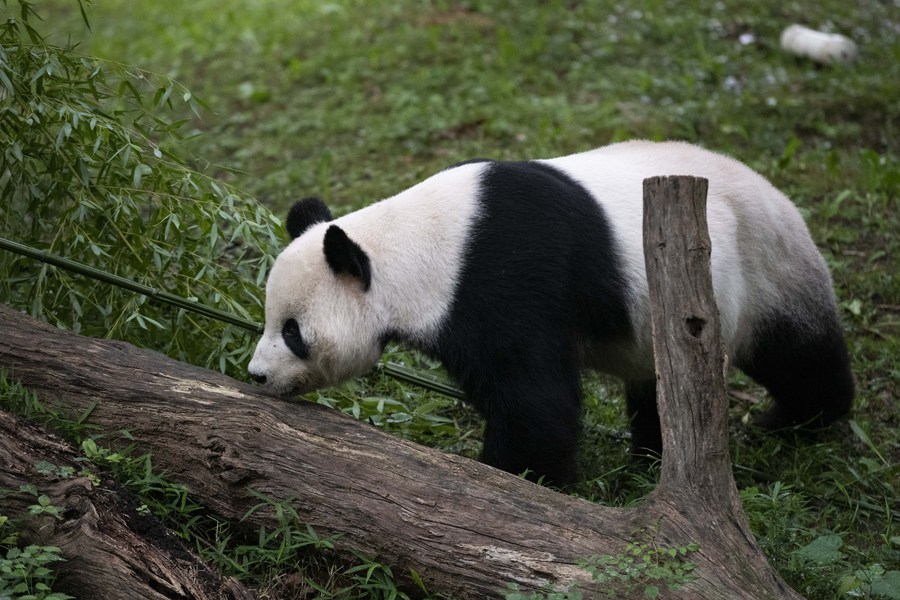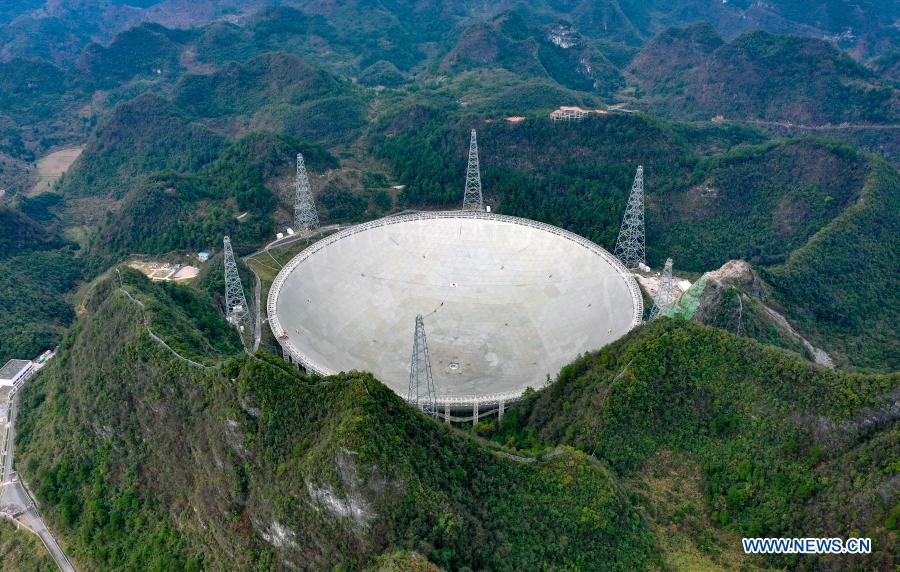
Giant panda Tian Tian is seen at the Smithsonian's National Zoo in Washington, D.C., the United States, Aug. 22, 2020. Mei Xiang was artificially inseminated in March this year with frozen semen collected from Tian Tian. (Xinhua/Liu Jie)
Giant pandas, an exemplar of the decades-old partnership between U.S. and Chinese institutes in conserving species, will prolong their residence here through the end of 2023, a delight to scientists as it enables further strides in research.
WASHINGTON, Dec. 8 -- The Smithsonian's National Zoo and the China Wildlife Conservation Association have extended their giant panda research agreement for three years, the zoo announced Monday.
Giant pandas, an exemplar of the decades-old partnership between U.S. and Chinese institutes in conserving species, will prolong their residence here through the end of 2023, a delight to scientists as it enables further strides in research.
"Our long-standing collaboration with Chinese colleagues to study, care for and save the giant panda will now pass the half-century mark," said Steve Monfort, John and Adrienne Mars Director of the Smithsonian's National Zoo and Conservation Biology Institute, in a statement.
Earlier this year at the zoo, giant pandas Mei Xiang and Tian Tian gave birth to their cub Xiao Qi Ji, or "little miracle" in English.













